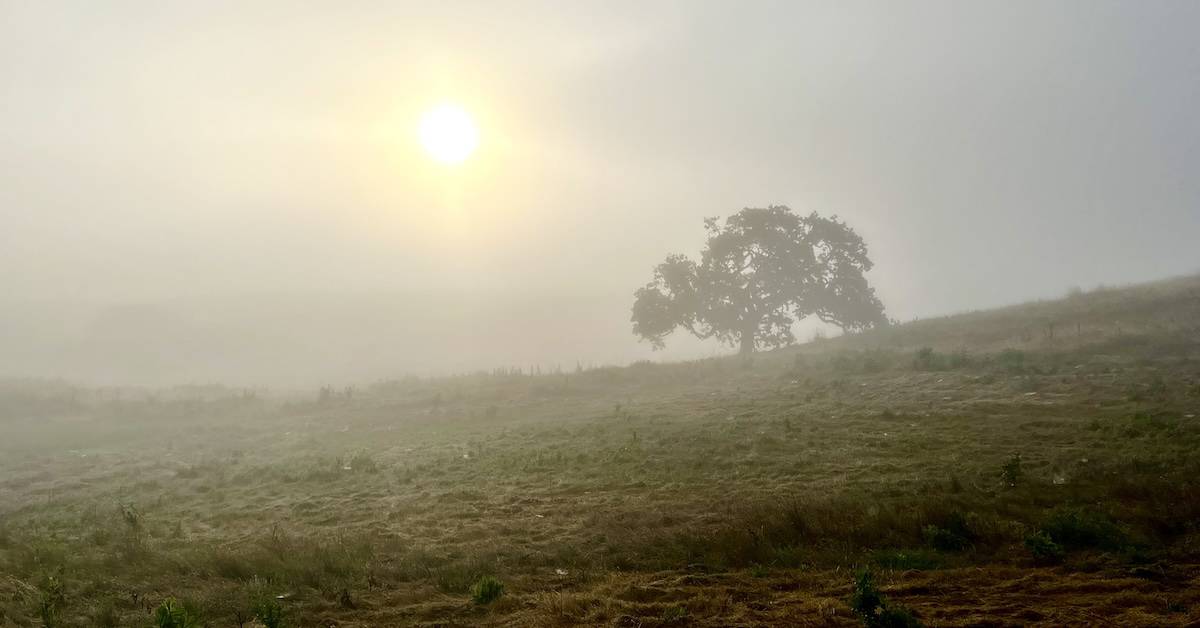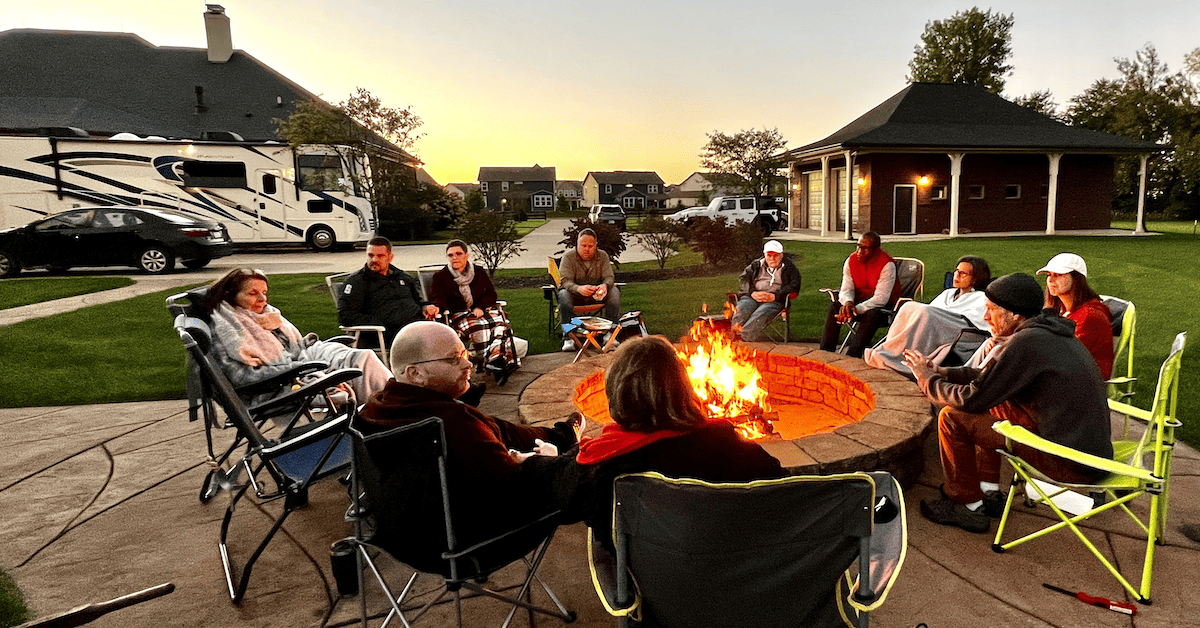Chapter 4: Who Are You to Write This?
Note: This is the fourth in a series of letters written for the Bride of Christ who are alive at the end of the age. Once complete, I’ll combine them into a book. You can start with Chapter 1 here. If you are not already subscribed to this blog and want to make sure you don’t miss any, you can add your name here.
________________
I am asking as a friend, not an adversary. I love that you’re doing this, but I am really curious how you came around to writing this book? It seems a bit out of your norm. I’d love to hear how you decided to tackle this project and why you think you’re qualified to write a book to those who will be alive at the end of the age?
—Trevor, mathematics professor and father of four from Massachusetts
Hi Trevor,
It’s great to hear from you again after so long. The last time we talked we were driving through New Hampshire in the vivid fall color. I’ll never forget those amazing chocolate cupcakes we stumbled upon in that small village.
Thank you for raising this issue; it’s an important one to be sure, especially for people who have no idea who I am. And you’re not asking me anything I have not wrestled out with God before starting this task.
So, I chuckled at your word, ‘qualified.’ Who could possibly qualify for this, or really most anything Father asks of us? But perhaps, knowing I’m not, may be the best quality I have going for me. I claim no credibility beyond being a beloved son of a gracious Father and close friend of Jesus, with whom I’ve walked for over sixty years.
For those who want to know, I grew up on a grape vineyard in Central California, and Jesus was an engaging presence in my life from a young age. I had my faults and struggles like anyone else and doubted him often. It took me decades to sort out the difference between well-intentioned religious activities and what it means to follow Jesus. They are not the same thing. One will wear us out on the proverbial performance treadmill and the other is a life-long adventure of learning to tune to Jesus’s frequency, recognize his voice, and follow him fearlessly.
So, after pastoring for twenty years with two different congregations, I came to conclude that the religious overlay we had put on the Gospel was woefully inadequate to help people discover how to listen to God’s heart and cooperate with his unfolding purpose in them and in the world around them. I still embraced the core beliefs of the Christian faith—namely, that God Created the heavens and the earth, was incarnated in his begotten Son who preached the message of the kingdom, offered himself as an atoning sacrifice to reconnect us to God, and rose from the dead to be the firstborn of a new creation and the head of his Church—those who live as ambassadors of his love until he returns to earth to set things right. Until then we have his Spirit to guide us into the truth that sets us free and the Scriptures, which when rightly interpreted, show us the nature of God and how he works.
Over the past thirty years, I’ve met thousands of people all over the world who had come to similar conclusions through incredibly different paths and have learned to follow Jesus even when it led them beyond their comfort zone. The depth of sharing I have enjoyed with them has fulfilled the deepest hungers that were planted in my heart as a young man.
So, how did I come to write a book preparing the last generation for his coming? It started four years ago with a thought in my head that seemingly came out of nowhere. “Will you speak for me again?” I was taken aback by the thought. It seemed like God’s voice more than my thoughts, though I didn’t know what he was referring to. I took the ‘again’ to refer to my book He Loves Me, which I wrote out of the most profound shift in my spiritual trajectory that came through the most painful season of my life to that point. I still consider it the most valuable words I’ve put into the world.
I promised God a long time ago I would follow him wherever he asked me to go. He gets a global yes to everything, once I conclude he’s the one asking. I thought it would take some time to unfold, so I began working on a sequel to, So You Don’t Want to Go to Church Anymore, picking up Jake’s journey ten years later. I was well into that project, when the gravity of unforeseen circumstances began to shift the trajectory of my life.
My first indication, though I was oblivious to its meaning at the time, was how my personal engagement with Jesus took a more sober tone. I didn’t know why then, but during times with him, I had a forbidding sense that a crisis was headed my way. I knew that when it did, I would have to follow the wisdom he would give me, rather than react in my own wisdom or anger. I needed to watch and pray, so that I would be prepared when the moment came, even though I had no idea what I was waiting for.
Over the months that followed, I began to recognize random events that made it seem as if our world was coming apart at the seams and read Scriptures that made me wonder if his coming was more imminent than I had supposed. Moreover, I went through a series of intense conflicts that challenged me to my core and Jesus gave me wisdom as to how to lean on him. It wasn’t any one of those things, but the accumulated weight of them all, that formed the idea of this book. Help people find a connection to Jesus that would sustain them through anything, even the end of this age. While this may be for a generation yet unborn, I don’t suspect that it is not.
So, does any of this make me the one to write the definitive book on preparing for the last days? Of course not, and this is not that book. I won’t be identifying potential antichrist candidates, figuring out the mark of the Beast, or arguing over amillennialism or whether Scripture points to pre-trib, mid-trib, or post-trib.
Instead, I am going to help encourage and equip those who may be in the last generation of Christ-followers who will face the joys and challenges in the days of his appearing, and none of those other things are of first importance in that endeavor. There is a way to live inside of him that will overcome any fear and teach you how to trust him regardless of what circumstances come. I’ve known Jesus to hold me in the deepest darkness and light a path for me to follow him through it more at rest in his love, more confident in the ways in which he works, and more transformed by his grace.
Deciding to actually write this, however, has been an intense struggle. I didn’t think I had the chops to do it, and I know my thoughts on this topic will offend people I love, who would prefer me to stick to my lane. But I am a man who listens to God as best I discern him. That has been the source of some of my most painful experiences and my greatest joys. I love him; I trust him and I am confident that he is bigger than my blind spots and weaknesses.
As I was still processing this project with God, I often wondered, “Why me? Haven’t you got someone better positioned to do this?” His response seemed to be, “Who? Give me a name.” Immediately names begin to come to mind of people I love, speakers and writers I respect. And yet with each one came a twitch in my Yuck Meter. This one is too embedded with a publisher who will distort the message to mass market it. That one is still building a brand or a community to find his identity or income. Others had yet to understand the nature of God’s love and might use these things to manipulate people’s fears or appeal to the flesh’s need of false validation.
So, I came up empty and ended up convinced that for whatever reason, he was asking this of me, not because I’m the best to do it but perhaps because I’m the least encumbered. Even still, I hope I’m not the only one to speak into this space but one of many voices, each fulfilling their part.
Over months, I became convinced that God had put this in my hands. Some of what convinced me provided a template for how I would go about it:
- I am going to focus on Jesus and how he works in us to transform our hearts. I’m not going to appeal to anyone’s fear or shame or demand they double-down on trying harder. I remember the days of “radical” discipleship, which was about our own efforts to read, meet, pray, study, and memorize in a flurry of activity that was more illusion that substance. Human power will not take you where the Spirit invites you. This is a work he does in willing hearts, not a plan even the most well-intentioned can implement.
- I’m going to help people discover how they can follow Jesus in these days. I’m not going to use the false need of belonging to build a community of last-day followers who are more committed or more special than others. Anything that sets you above others around you has to be suspect from its inception.
- I’m going to be free to speak my heart and not have to filter this message through the publishing trade who will shape the message with an eye toward sales and marketing. By the time something wonderful goes through that process it is often less about following Jesus than it is copying someone’s story, which will never yield the fruit we hope for.
- I’m not going to monetize the message for my own profit. Every app on my iPhone has gotten worse the more it has been restructured for financial gain. There’s nothing about God’s truth that won’t be twisted by the desire for a good financial return. I’m giving this book away from the very beginning by posting it here on my blog. The book form will most likely sell for a modest fee, but the content will always be free online.
- I am not beholden to a congregation or a constituency that I need to please to keep my job or income. I’m in my 70s with an amazing family and wonderful friends; if people want to attack me for what I write, I’ll be fine with that. I don’t need this material to build an audience or to make me popular. I only want to convey in simple and honest words what he has shown me.
- I am not writing this alone. I’m the repository of hundreds of thousands of conversations with people all over the world in varying expressions of Christianity who have learned to live in the love of Jesus and follow his voice. It’s the fruit of talking with people instead of speaking at them. I don’t take that lightly; it is a great treasure.Everything I share in these pages has been vetted with others I’ve walked with for a significant season and whose hearts I trust. They have full freedom to speak into my life where they feel like I’m missing it, and yet they would never ask me to follow their thoughts above my conviction of what God wants of me. As these chapters take shape, I will be drawing on those conversations and what I hear throughout the body of Christ by people who have learned to live in his love, rest in his work, and listen to Jesus with humility.
- I will write these things in the full light of day, not cloistered in my studio. Each chapter will appear on-line and bear the scrutiny of whoever reads them. Others can comment and where that helps clarify what I’m hoping to convey, I will rewrite the chapters to say it in the most accessible way.
- I know part of the gift God has given me is to express his thoughts in ways that help other people recognize what he’s already been saying to them. The greatest compliment I have ever received, and I have heard it often, is this: “You put words to ideas I already know in my heart and did not know how to express them.” My prayer is that this will do the same to help awaken the Bride to her destiny.
- My words will be gentle, an invitation to people who already want to see what’s true, not a debate for those I think will disagree. I will write with tender counsel and comfort, not authoritative screeds. Jesus is wooing his Bride into these days, not threatening her and thus I write for friends who are already experiencing the power of love, rather than adversaries who would prefer to debate for a more legalistic path.
I’m also convinced this is the audience Jesus wanted to share these things with. For a long time, I’ve recognized that many people who hang around Lifestream or The God Journey are some high-caliber followers of Jesus whose wisdom and love touch many others. I’m not alone in that conclusion. Whenever I introduce some of the people I know to others, I often hear back, “You have some of the most amazing friends.” I do, and for that I’m grateful. Perhaps many of you are positioned to understand what I’m writing and to help others hear his call as well.
Even so, starting this book has been a challenge. How do I find the tone and format to share these things that burn on my heart? I started it many times and had to discard what I wrote. None of it sounded the way I’d hoped.
On an early morning walk an image came to mind. What if one day a group of young people who were touched by some of my writings invited me to spend a weekend with them. Specifically, they asked, “Wayne, if we would happen to be the generation that’s alive when Jesus returns, what thoughts would you have to help us prepare for those days?”
Now, I could write that book, and those are the people I would long to write it for. This is what I would share with them as the most valuable lessons of my journey. Without a vibrant and active connection to him, the end of the world would not be survivable. You cannot navigate those times by the principles others have taught, only by a Presence who will walk with you.
I realize much of this content will be challenging, especially for people with more religious backgrounds. If it has no meaning to you, or proves hurtful, feel free to disregard those things. I’m not forcing this on you. In these pages, I want you to find that which draws your heart closer to God’s and helps you recognize his tender call to his bride and lets him prepare your heart for whatever might lie ahead.
Perhaps you, too, have a sneaking suspicion that the days of our world’s destruction are coming to an end and that Jesus stands at the threshold of human history to complete the redemption that he began with his birth in Bethlehem, then purchased at Calvary, ratified by his Resurrection from the dead, and will finally consummate when he stands on the Mount of Olives once again.
I can almost taste the moment. If it happens in my lifetime, I’ll be thrilled to be part of such days. And if not, I’ll be cheering from the other side those of you for whom the end of the days has come.
_________________________
You can access previous chapters here. or Continue to Chapter 5.




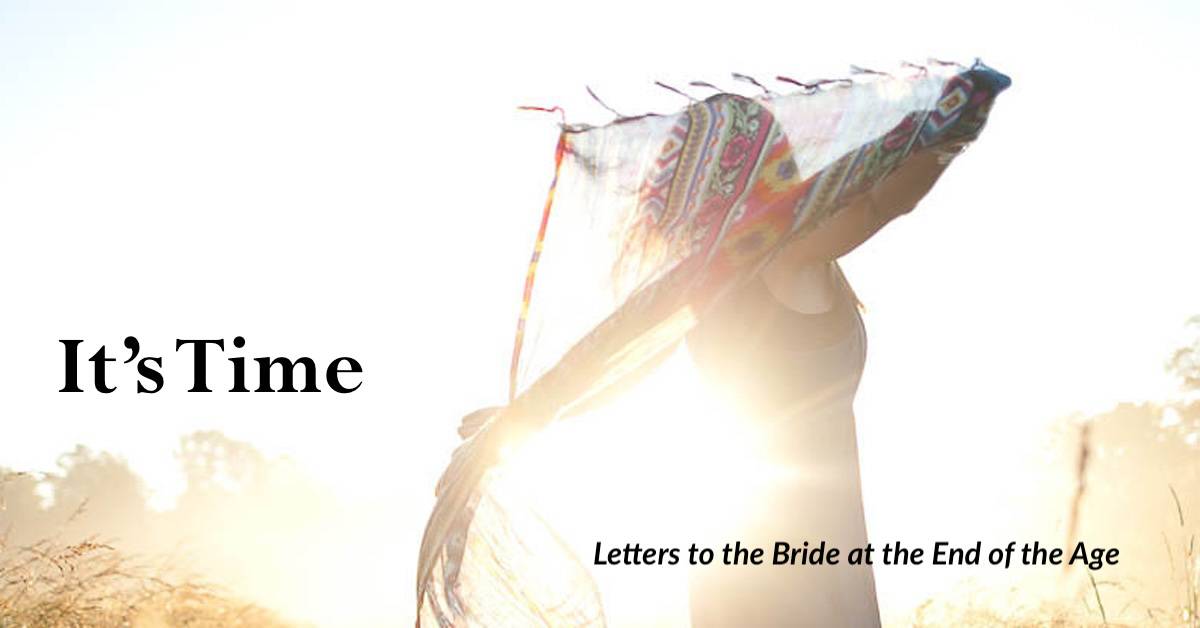
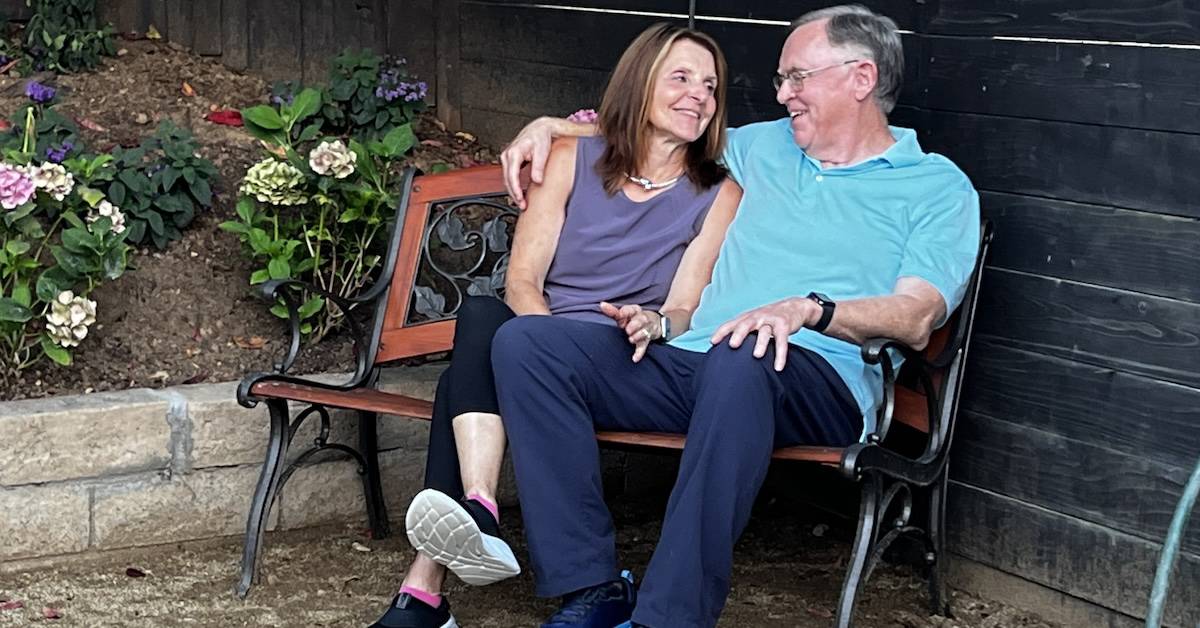
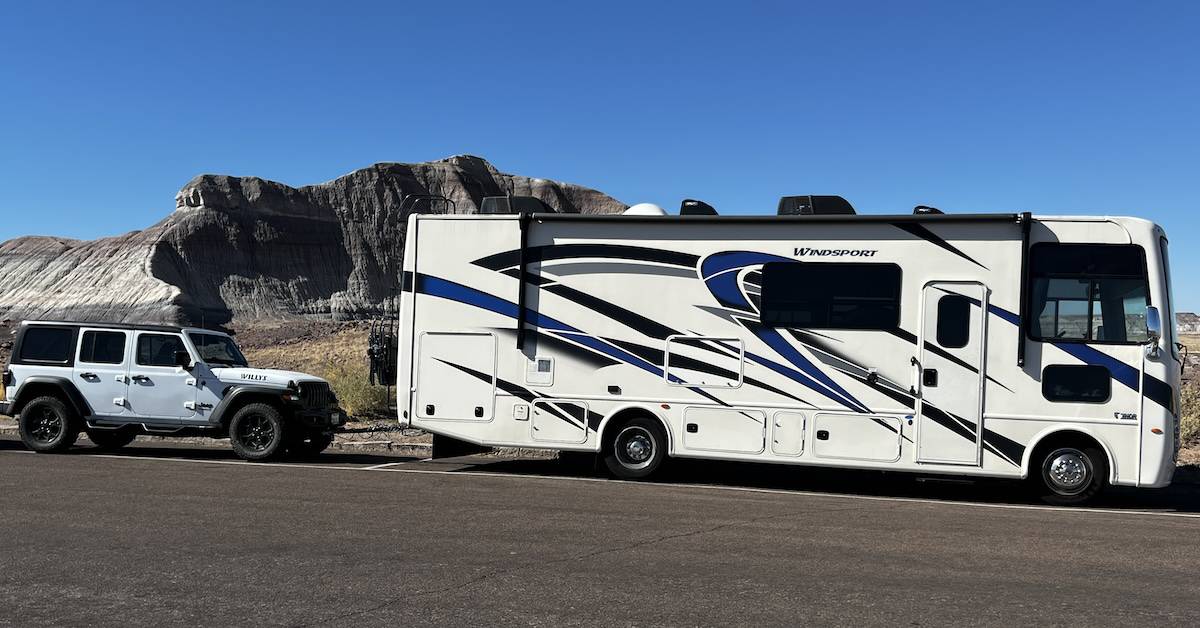
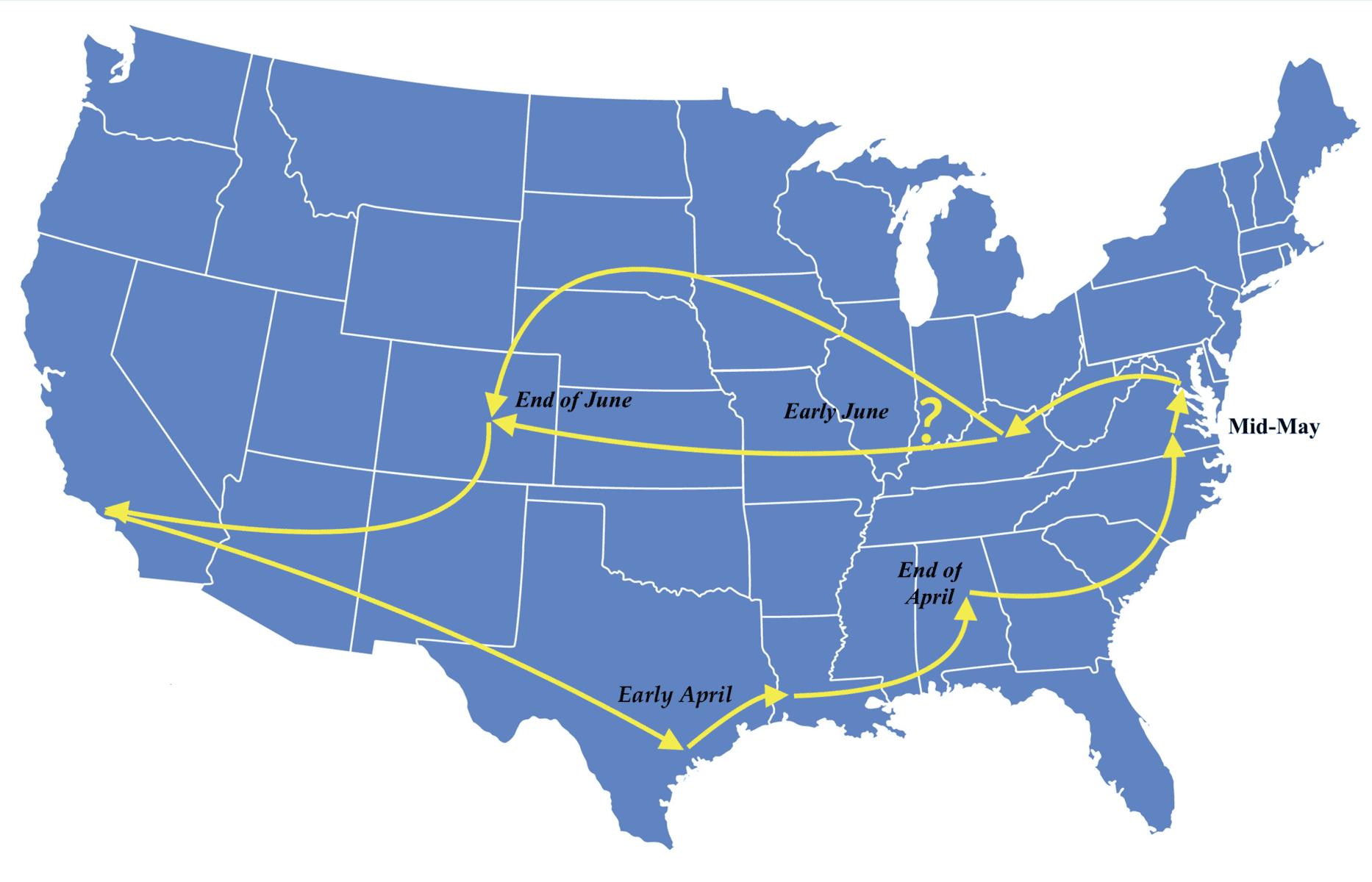

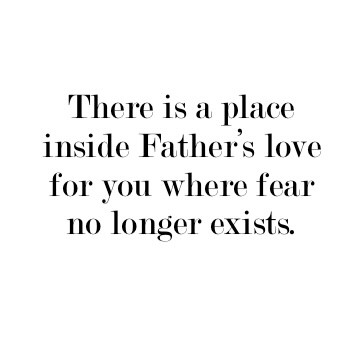 Don’t think you have to be perfect to grow here; it’s a process. When I find myself afraid, I realize there’s a way to grow in him that will consume it. It may take weeks or even months, depending how deep the fear is, but he will teach you so much about yourself and him that you will notice it bearing fruit in many other areas of your life as well.
Don’t think you have to be perfect to grow here; it’s a process. When I find myself afraid, I realize there’s a way to grow in him that will consume it. It may take weeks or even months, depending how deep the fear is, but he will teach you so much about yourself and him that you will notice it bearing fruit in many other areas of your life as well. 
